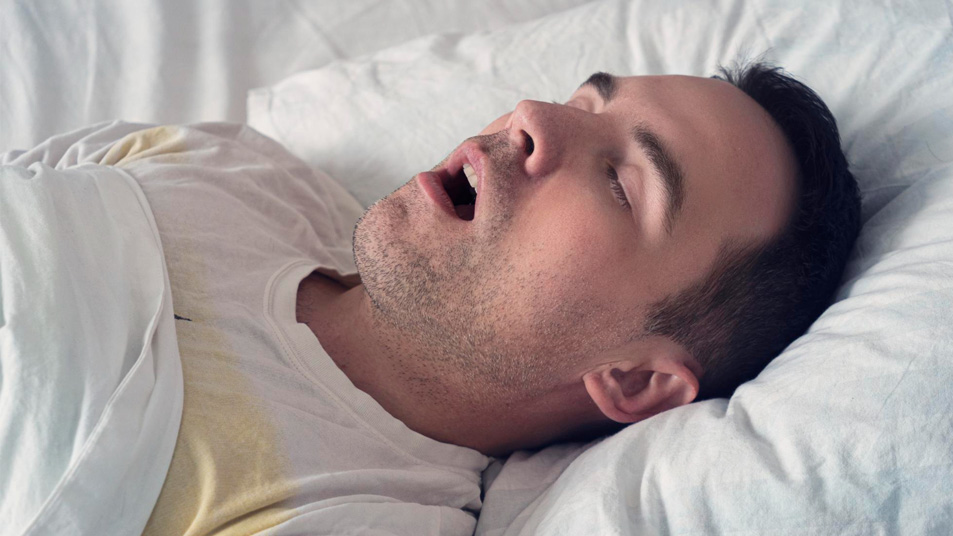
Snoring disorder is a medical condition characterized by habitual, loud snoring that disrupts an individual's sleep and may negatively impact the sleep quality of those nearby. While occasional snoring is common and often harmless, a snoring disorder can indicate underlying health issues and may lead to other complications if left untreated.
Causes of Snoring Disorder :
Snoring can be caused by a variety of factors, and it often results from an obstruction in the airway. :
Nasal Congestion : Blocked nasal airways from colds, allergies, or sinus infections can make it difficult to breathe through the nose, leading to snoring.
Obstructed Airways : The throat's soft tissues, including the uvula, tonsils, and adenoids, can become enlarged or relaxed, partially blocking the airway and causing snoring.
Sleep Position : Sleeping on your back can cause the tongue and soft tissues of the throat to collapse to the back of the mouth, obstructing the airway and leading to snoring.
Obesity : Excess weight, especially around the neck, can put pressure on the airway, leading to snoring.
Smoking : Smoking irritates the airways and leads to inflammation and congestion, which can contribute to snoring.
Age : As people age, the throat's muscle tone decreases, and the airway can become more prone to collapse, causing snoring.
Gender : Men are more likely to snore than women due to anatomical differences in the throat and airway.
Sleep Apnea : This is a more serious condition where snoring is accompanied by pauses in breathing during sleep. It often requires medical treatment.
Deviated Septum : A deviation in the nasal septum can restrict airflow and contribute to snoring.
Symptoms of Snoring Disorder :
Snoring is often more than just a noisy annoyance; it can be a symptom of underlying health issues. The symptoms and signs associated with snoring disorder, particularly when it's related to obstructive sleep apnea (OSA), include :
Loud Snoring : This is often the most noticeable symptom, especially if
it's loud enough to disturb other's sleep.
Gasping or Choking During Sleep : The person may occasionally wake up gasping for air or choking.
Irritability or Mood Swings : Sleep disruption can affect mood, leading to irritability or mood swings.
Dry Mouth or Sore Throat : Often waking up with a dry mouth or sore throat due to breathing through the mouth while sleeping.
Morning Headaches : Frequent headaches upon waking can be a sign of inadequate oxygenation during sleep.
Frequent Nighttime Awakenings : Waking up multiple times throughout the night can be a sign of sleep disturbances.
High Blood Pressure : Chronic snoring and sleep apnea can contribute to high blood pressure or worsen existing hypertension.
Restless Sleep : Tossing and turning or experiencing restless sleep can indicate sleep disorders.
Types of Snoring disorders :
Simple Snoring : This is the most common type and usually occurs when the airway is partially obstructed. It can be due to nasal congestion, a thick or long soft palate, or obesity. While it might not always indicate a serious health issue, it can still be disruptive.
Obstructive Sleep Apnea (OSA) : This is a more severe condition where the airway becomes completely blocked during sleep, leading to repeated pauses in breathing. People with OSA often snore loudly, but their breathing can stop and start throughout the night. This can lead to fragmented sleep and daytime fatigue. It's associated with various health issues, including high blood pressure, heart disease, and stroke.
Central Sleep Apnea : This is less common and involves the brain not sending proper signals to the muscles that control breathing. Snoring is less common in central sleep apnea compared to obstructive sleep apnea.
Complex Sleep Apnea Syndrome : This is a combination of obstructive and central sleep apneas. It can occur when someone with obstructive sleep apnea develops central sleep apnea.
Whether through lifestyle changes, medical treatment, or adjusting sleep positions, can often help reduce or eliminate snoring. If snoring is persistent and disruptive, especially if it's associated with symptoms like daytime sleepiness or choking during sleep, consulting a healthcare provider is advisable.
Treatment for Snoring Disorder :
If snoring is frequent and loud, especially if it’s accompanied by choking or gasping sounds, excessive daytime sleepiness, or difficulty concentrating, it’s a good idea to consult a healthcare professional. They might recommend a sleep study (polysomnography) to diagnose any underlying conditions. Treatment can range from lifestyle changes (like losing weight or avoiding alcohol before bed) to more medical interventions, such as Continuous Positive Airway
Pressure (CPAP) therapy or surgery in severe cases.
Lifestyle Changes -
Weight Management : Excess weight, particularly around the neck, can increase
snoring. Losing weight may reduce or eliminate snoring for some people.
Sleep Position : Sleeping on your back can cause the tongue and soft tissues of the
throat to collapse to the back of the mouth, leading to snoring. Try sleeping on your side instead.
Avoid Alcohol and Sedatives : These substances relax the muscles of the throat, increasing the likelihood of snoring.
Establish a Regular Sleep Routine : Consistent sleep patterns can help reduce snoring.
Home Remedies -
Humidifiers : Keeping the air in your bedroom moist can help reduce throat irritation and congestion.
Nasal Strips : These can help open nasal passages, making breathing easier and
reducing snoring.
Throat Exercises : Strengthening throat muscles through specific exercises can
sometimes reduce snoring.
Medical Devices -
Continuous Positive Airway Pressure (CPAP) : For people with obstructive sleep apnea, a CPAP machine keeps the airway open during sleep.
Oral Appliances : Devices that reposition the lower jaw and tongue can help keep the airway open.
Nasal Dilators : Devices that help open nasal passages.
Positional Therapy : Techniques or devices that encourage side-sleeping.
Surgical Treatments :
Uvulopalatopharyngoplasty (UPPP) : Removes excess tissue from the throat.
Septoplasty : Corrects a deviated septum.
Laser-Assisted Procedures : To reduce tissue in the airway and improve airflow.
When to See a Doctor :
If snoring is accompanied by symptoms like excessive daytime sleepiness, choking or gasping during sleep, or if it’s affecting your quality of life, consult a healthcare provider. These could be signs of sleep apnea or other underlying conditions.
A tailored approach based on the severity and cause of snoring will often be the most effective.
